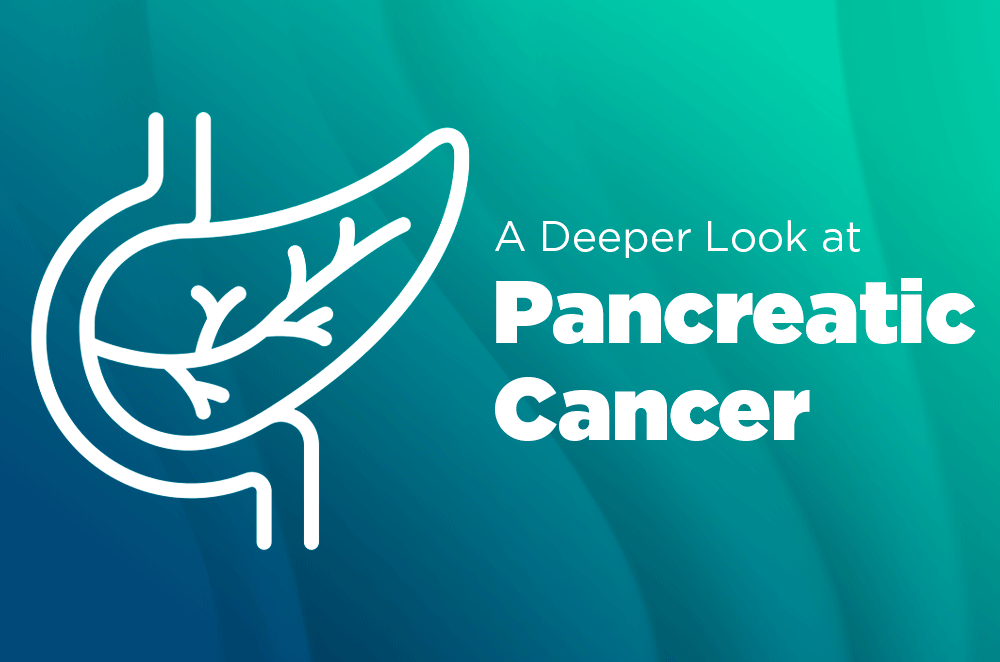November is Pancreatic Cancer Awareness Month, the perfect time to spread awareness of this often-overlooked disease. While it might not be as widely discussed as other cancers, pancreatic cancer is a serious health concern that deserves our attention. In this post, we take a deeper look at pancreatic cancer.
What is Pancreatic Cancer?
Picture a hardworking organ, tucked away behind your stomach. This is your pancreas. It’s a vital player in your body’s orchestra, conducting two key functions: digestion and blood sugar regulation. The pancreas produces enzymes that break down carbohydrates, proteins, and fats from the food you eat. These enzymes are essential for proper nutrient absorption.
It also produces hormones like insulin and glucagon, which work together to maintain healthy blood sugar levels. Insulin helps your cells absorb glucose (sugar) from the bloodstream, while glucagon signals your liver to release stored glucose when needed.
Unfortunately, sometimes the delicate balance of the pancreas can be disrupted. Pancreatic cancer occurs when abnormal cells in the pancreas begin to grow uncontrollably, forming a tumor. These cancerous cells can invade nearby tissues and spread to other parts of the body, making early detection crucial.
Why is Pancreatic Cancer so Dangerous?
Pancreatic cancer often doesn’t show symptoms until it’s advanced, making early detection a challenge. By the time symptoms appear, the cancer may have already spread. It tends to grow and spread rapidly, making treatment difficult. While medical advancements have improved, there’s still a significant need for more effective treatments. Current treatments often include surgery, chemotherapy, and radiation therapy, but these may have limited success, especially in advanced stages.
Risk Factors
While anyone can develop pancreatic cancer, certain factors increase the risk. Understanding these risk factors can help you take steps to reduce your chances of developing this disease.
Age: Risk increases with age, especially after 55.
Smoking: Smoking is a major risk factor, significantly increasing your chances of developing pancreatic cancer.
Family HIstory: A family history of pancreatic cancer can increase your risk, especially if multiple family members have been affected.
Chronic Pancreatitis: Long-term inflammation of the pancreas can raise your risk of developing cancer.
Diabetes: People with type 2 diabetes have a slightly higher risk compared to the general population.
Symptoms to Watch For
The early signs of pancreatic cancer are often subtle and easily dismissed as other, less serious conditions. Symptoms may include:
- Persistent abdominal or back pain
- Unexplained weight loss
- Loss of appetite
- Jaundice
- Greasy stools or changes in bowel habits
- Fatigue
- New-onset diabetes or worsening of existing diabetes
Due to its vague symptoms, pancreatic cancer is frequently diagnosed at an advanced stage when treatment options are limited. Even when detected early, it is notoriously difficult to treat. Surgery, chemotherapy, and radiation therapy are common treatment approaches, but they often have limited success.
Early Detection is Key
Don’t wait for a perfect test – be proactive with your health! While there isn’t a specific screening test for pancreatic cancer just yet, regular checkups with your doctor are key. If you experience any of the symptoms mentioned above, especially if you have risk factors, consult your doctor right away. Early detection makes a world of difference in treatment success.
Our gastroenterology team at CCMH is here to help you every step of the way. We specialize in pancreatic health, from diagnosing and treating pancreatitis and pancreatic cancer to managing cysts and other pancreatic issues. We want you to feel empowered to understand and manage your pancreatic health.
Ready to schedule an appointment? Click here: https://www.ccmhhealth.com/center-for-digestive-health/
Resources:
Disclaimer:
The Comanche County Memorial Hospital website does not provide specific medical advice for individual cases. Comanche County Memorial Hospital does not endorse any medical or professional services obtained through information provided on this site, articles on the site or any links on this site.
Use of the information obtained by the Comanche County Memorial Hospital website does not replace medical advice given by a qualified medical provider to meet the medical needs of our readers or others.
While content is frequently updated, medical information changes quickly. Information may be out of date, and/or contain inaccuracies or typographical errors. For questions or concerns, please contact us at contact@ccmhhealth.com.

